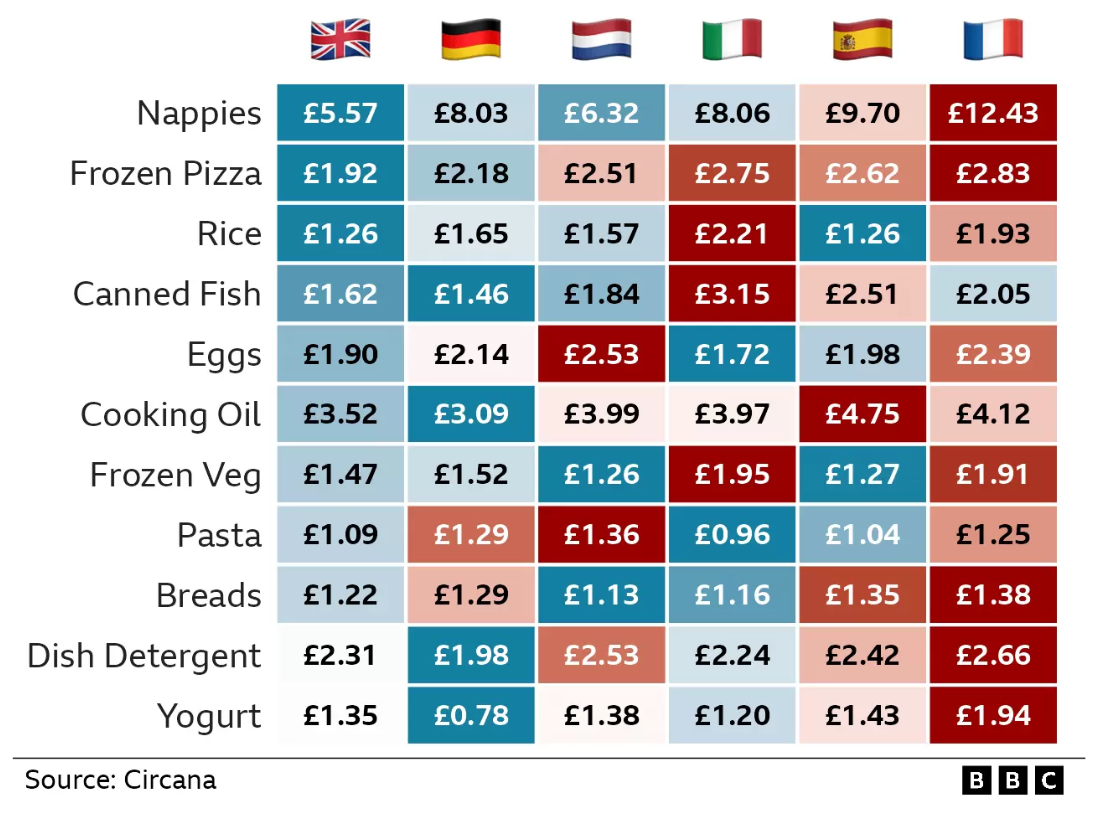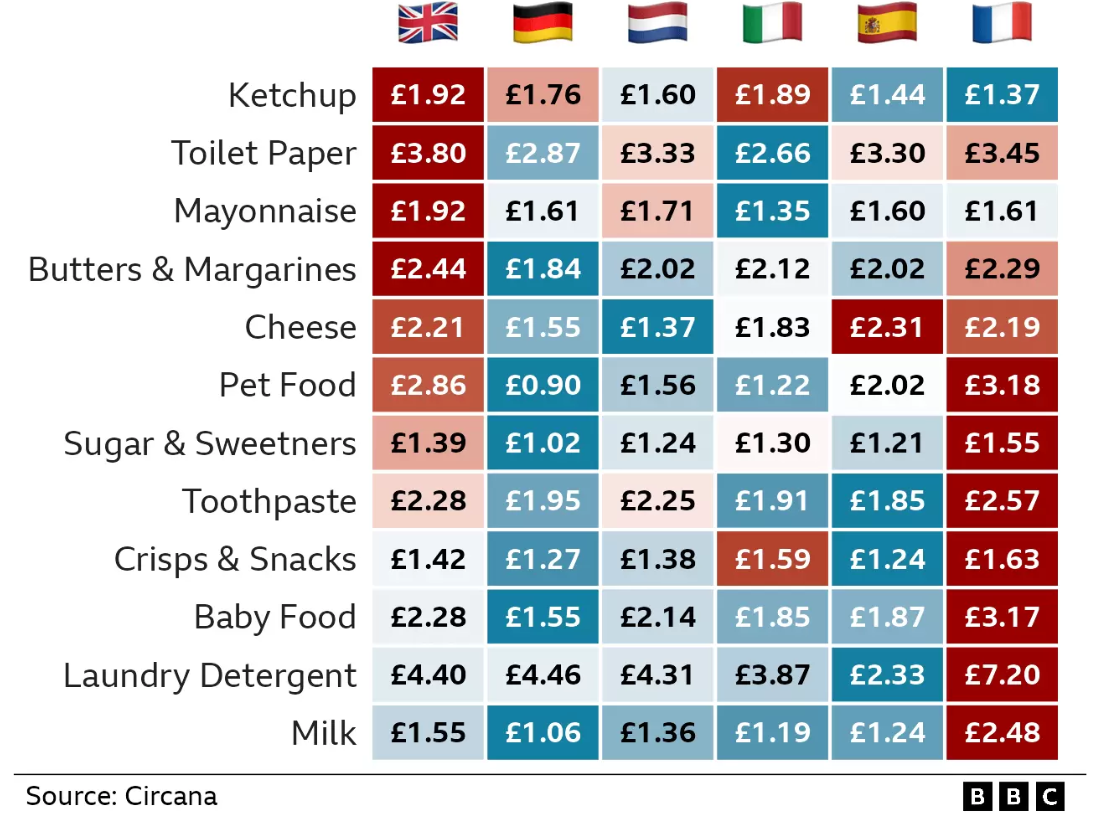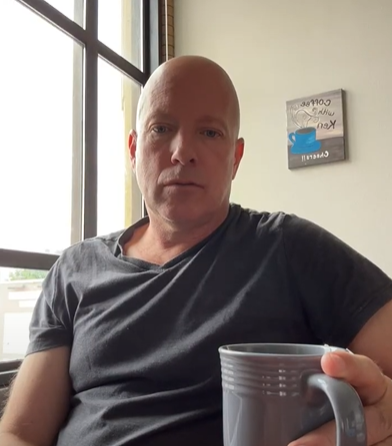European Price Charts... what the hell, France?
5 comments
I was just reading this BBC thing comparing prices of every day products Across major European countries.
It's been my impression to date that the EU is doing just fabulously compared to the third-world train wreck we call the UK.
It doesn't entirely make sense to think that way, given how dependent Germany is on Russian gas, for example, but that also ignores the pure incompetence of the British government not dissimilar to an anarchistic failed state in many regards.
So it did feel a bit surprising when I saw the following chart:

Like... Wtf France? $15 for diapers in American language. A further investigation shows that on average, a child is gonna shit itself through about 4,500 nappies (diapers). I dunno how many come in the pack they chose for this survey but... that's a hell of a promotion for a childless future in France!
Even the UK which has by far the cheapest, is still kind of a hefty price. UK doesn't charge sales tax on these apparently, which might explain some of the price reduction.
On average, prices in the UK are about 20% higher than only a year ago. But it does seem like France is getting the rough end of the brush in most categories.
There's a lot of explanations I can't be bothered to dig into too deeply, but I do think the BBC did a pretty messed up job at this. For example:

This suggests Germany is super cheap across the board, while a number of stuff in England is more expensive.
But the article quietly slips in the fact that they didn't include Aldi and Lidl. These are two huge discount supermarkets that make up 17% of the entire market in the UK. That's no small feat. Naturally, the prices are showing a comparatively higher price, then.
In contrast, these brand-less, or own-brand stores make up about 40% of Germany's supermarket industry: Lidl AND Aldi are both from Germany. In fairness to BBC, this creates a more competitive environment which explains their decent prices, especially given the success of these two companies. Even if they were not included in the survey, their overall market effects will be quite influential.
I also noticed the BBC's terrible use of colours.
While Ketchup is only 32p more expensive in the UK compared to Netherlands, our price is in the deep, angry burgundy danger red, while Netherlands is in calm, baby blue. That's only a price difference of like... 20%, for a product that people aren't exactly buying every day, and is hardly considered essential.
In contrast, the price difference between France and Germany's Nappies is about 4.4GBP, which is roughly 50% more expensive for France, and yet they enjoy the same colour differentiation, despite being a product constantly in use, and essential.
It's picky, I know, but it has a clear psychological effect. When I first saw ketchup in that deep, ketchup-red colour, I almost started getting angry at the UK's economic disaster unfolding.
The whole article is set up to imply the UK is way more expensive, when it isn't. The blurb:
UK shoppers are paying more for many everyday items than some of our European neighbours, data suggests.
Pretty misleading, given how their charts suggest we're paying less for most things, and the things we pay less for, are more important and more frequently purchased things.
Our higher prices are for sugary treats, ketchup, mayonnaise.
Our lower prices are for things like milk, rice, eggs, bread, nappies, oil and pasta.
Overall, it's pretty pleasantly surprising... by comparison.
Let's not forget all these prices are pretty absurd compared to a year ago. I mean, the fact we're paying almost 3 quid for pet food compared to Germany's 0.9, is pretty outrageous, but... if you circumvent BBC's misleading angle and search for pet food at an Aldi store, the prices are basically the same. Germany gets lower low prices, but also higher highs.
I gotta say, I've been noticing a stark decline in BBC's journalism.
Perhaps it's Brexit's fault.
As for France... Ouch.



Comments